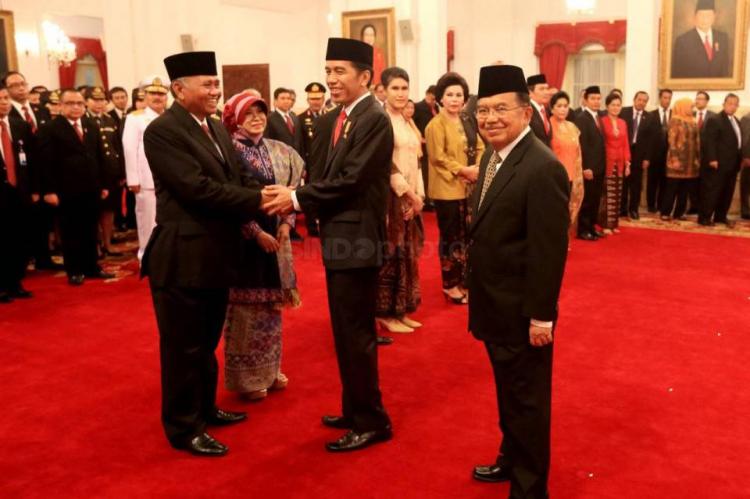Jokowi must show commitment to KPK
Sunday, 06 March 2016 - 00:00

Regardless of all the euphoria around the Corruption Eradication Commission (KPK) for the past year, the antigraft body is facing yet another attempt to strip it of its authorities, especially those pertaining to investigation and prosecution. This attempt takes form in the most legitimate way, namely a legislative process to revise the KPK Law.
Admittedly, the current KPK Law is imperfect. However, it is sufficient to support the KPK’s work in combating corruption and therefore, revising the law is uncalled for. Not only is it unnecessary, but the substance of the revision draft is also problematic, which only shows that the drafters intend to weaken the KPK.
Since the KPK Law revision was listed in the 2016 National Legislation Program, there have been two drafts circulated among the public. The first was on Feb. 2 and the second on Feb. 10. Neither looks likely to strengthen the KPK.
There are several crucial issues in both drafts, which will directly and adversely affect the way the KPK works, such as the establishment of a supervision body. The mooted new organ is very problematic because of possible conflicts of interest facing its members, who are appointed and answer to the President, if the KPK investigates graft cases involving government agencies.
Instead of exercising its control mechanism, the supervision body appears as another superior body to the KPK, above the five commissioners elected by the House of Representatives.
The drafts also propose that the KPK no longer be allowed to prosecute corruption cases, be able to select independent investigators and terminate investigations. These changes will only put the KPK on the same platform as the National Police and Attorney General’s Office.
Were that allowed to happen, the KPK will lose the sense of its original content: an independent body that is able to coordinate and supervise other law enforcement agencies in investigating corruption cases. The two drafts are far from the idea of empowering the KPK. They instead incapacitate the commission.
After all the fuss about whether to revise or not to revise the present KPK Law, President Joko “Jokowi” Widodo has answered the call, by not answering it clearly enough. Presidential spokesman Johan Budi says the President opposes the revision. However, instead of saying so with a clear and distinct message, the President has merely postponed deliberation of the KPK Law amendment.
The delay itself has confused the public. They must wonder if the President is willing to withdraw the revision of the KPK Law from the Prolegnas 2016 or have it discussed some other time in the future. If the latter happens, it’s going to be like a ticking time bomb that could be exploded should the “right” timing to threaten the KPK comes.
Instead of revising the KPK Law, it would be more timely and fruitful for both the government and the House to pay more attention to the revision of the Anticorruption Law and deliberation of an asset recovery bill and limitation of cash transaction bill. The three laws are crucial to support corruption eradication, besides being in line with the UN Convention Against Corruption (UNCAC).
The UNCAC, for example, mandates state parties to regulate illicit enrichment norms within its national law, a mandate Indonesian has not incorporated into its Anticorruption Law. This norm aims to seize unexplained wealth and illicit enrichment committed by governmental officials, law enforcers and other parties regulated by the law.
The need to regulate illicit enrichment norms is supported by Financial Transaction Reports and Analysis Centre (PPATK) findings. This shows that there are more than 200 suspicious transactions throughout 2015, mostly involving state officials. If Indonesia enforces the illicit enrichment norm, KPK and other law enforcers will have a legal basis to investigate officials.
Limiting cash transactions will also help law enforcers and financial intelligence units to keep track on financial transactions, which will automatically alarm them if large money withdrawals are made.
In the current law, the alarm will only work in serious cases like bribery. If the new law comes into effect, the action of withdrawing more than the permitted amount of money can be considered a criminal act.
If President Jokowi really wants to strengthen the KPK, he should demand the withdrawal from the Prolegnas of the revision, and push for immediate deliberation of strategic legislation instead.
Lalola Easter, the writer is a legal researcher at Indonesia Corruption Watch.
---------------
This article is copied from The Jakarta Post, March 6, 2016










